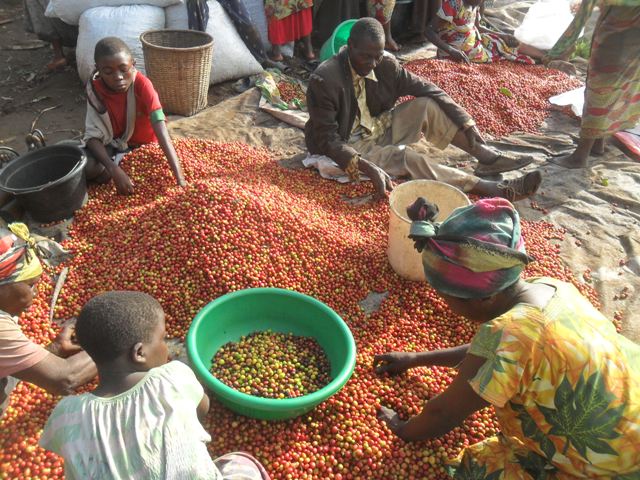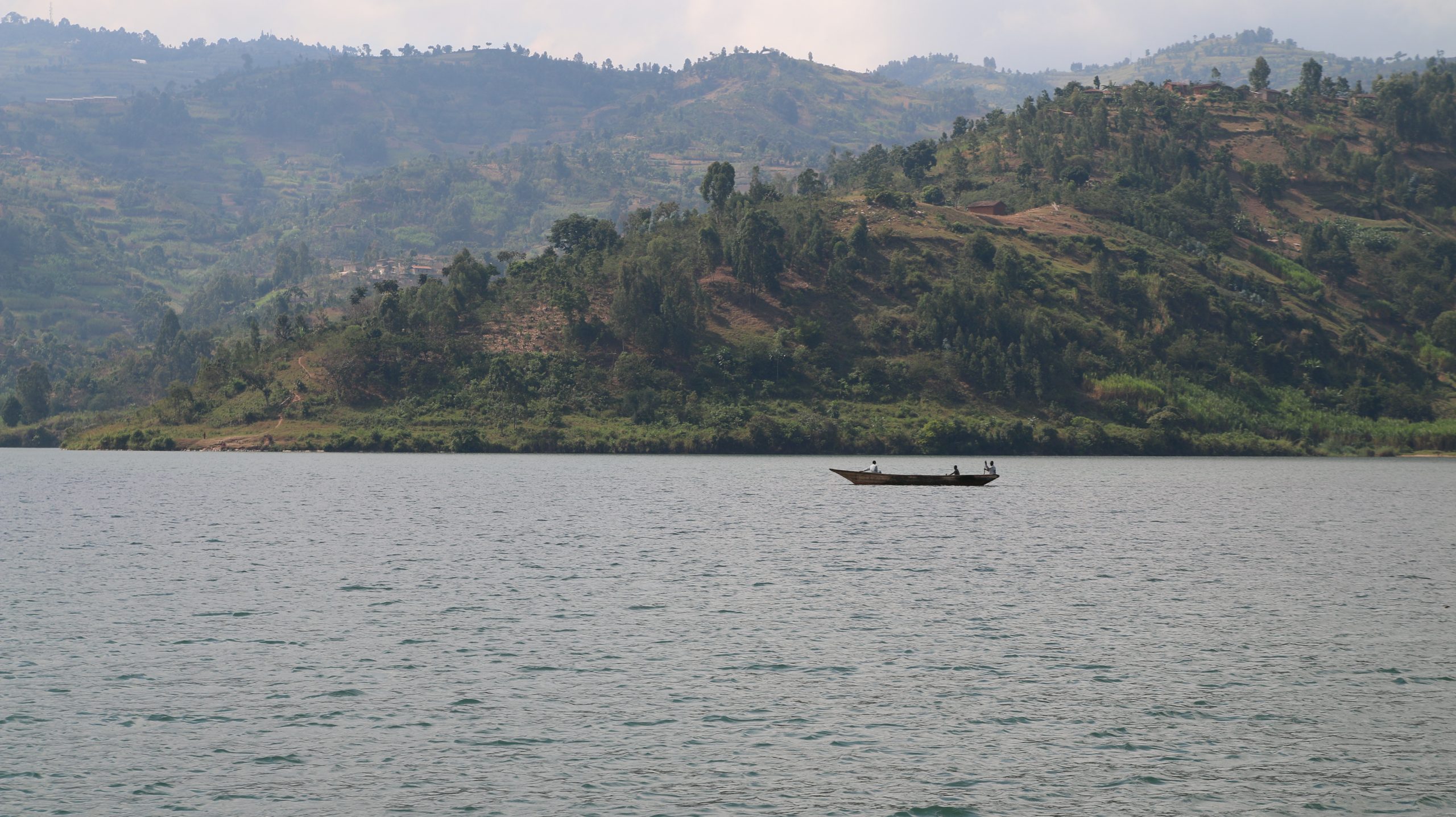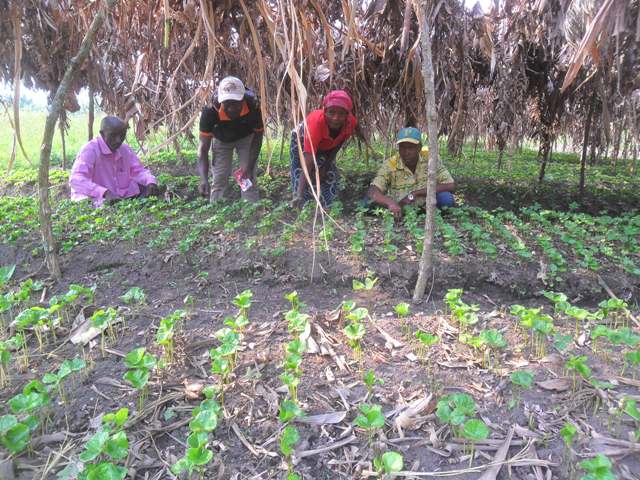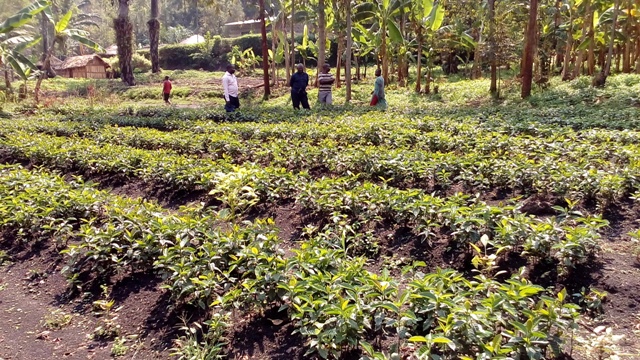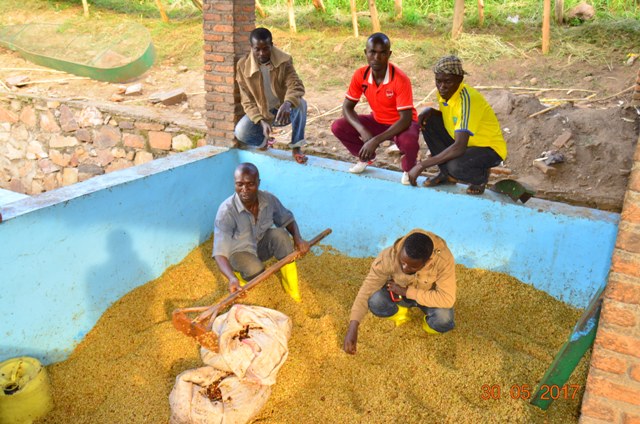DR Congo – FTO Microlot – SOPACDI – Kalungu-Birambo Micro-Station – FLO ID 26275 B14092
Specs:
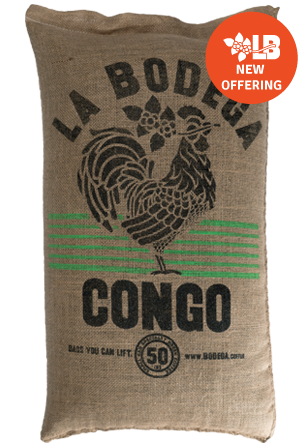
Source:
DR Congo
Region:
Birambo Village, Kalehe Territory, South-Kivu Province
Farm:
90 smallholder members of SOPACDI delivering to the Birambo MicroStation
Variety:
Blue Mountain, Bourbon, Caturra, Catuai, Kabare 2
Altitude:
2000 masl
Processing:
Washed
Notes:
"Rich, sugary, caramel and chocolate flavors with cola and cooked fruit, big tart fruit acidity and a sugary mouthfeel."
Score:
Price/Bag:
$5.80 per lb
$290.00 per bagOut of stock
Background:
SOPACDI (Solidarité Paysanne pour la Promotion des Actions Café et Development Intégral) is an organization comprising more than 5,600 farmers, roughly 20 percent of whom are women, located near Lake Kivu in the Democratic Republic of Congo. Each farmer has a very small area of farmland for coffee (fewer than 2 hectares on average), and tenders cherries to SOPACDI through the organization's 10 collection subgroups.
Joachim Munganga, who was a farmer himself, founded SOPACDI in 2003 by restoring a washing station in the area, which provided service and market access to the growers in these extremely remote highlands. Before he undertook this work, farmers had little to no means to transport coffee to the markets, and instead were forced to simply barter their coffee locally for food, clothing, and necessities. The cooperative was the first to achieve Fair Trade certification in Congo, and the coffee also carries organic certification. Members of the cooperative represent several different ethnic groups, speaking Kirundi, Kinyarwanda, and Kihavu, and many of the women members are widows.
These coffees are traceable to the individual washing stations, where members will deliver their coffee in cherry form and receive payment for what they bring, based on volume. After that point the coffee is sorted and will be separated into lots depending on the day and the quality, which makes it impossible to know which farmers’ coffees are in which lots.
At this washing station, coffee is depulped the day it is delivered, and fermented dry for 12 hours. Then it spends 12 under water before being passed through the washing canal, and then it is soaked for an additional 12 hours. The coffee is dried on raised beds under a cover of shade for 14–20 days. This particular "microstation" serves 90 producers, including 21 women. The group represents about 30 total hectares of coffee farmland, which is about 1/3 hectare per producer on average.
For more information about coffee production in DR Congo, visit our DR Congo page.
Recommendations
-

Bolivia – FTO La Paz – La Cooperativa Corpus Cristhy Illampu R.L – Red Catuai & Typica – FLO ID 3645
$ 5.14 per lb Add to cart -

Brazil – Organic Cascara – Cascara Tea – Espirito Santo – Fazenda Camocim – Biodynamic
$ 15.87 per lb Add to cart -

Burundi – Microlot – Gakenke – Kayanza – Washed
$ 6.05 per lb Add to cart -

Colombia – Decaf Origin Select – EA Decaf de Cana – Huila
$ 5.27 per lb Add to cart
